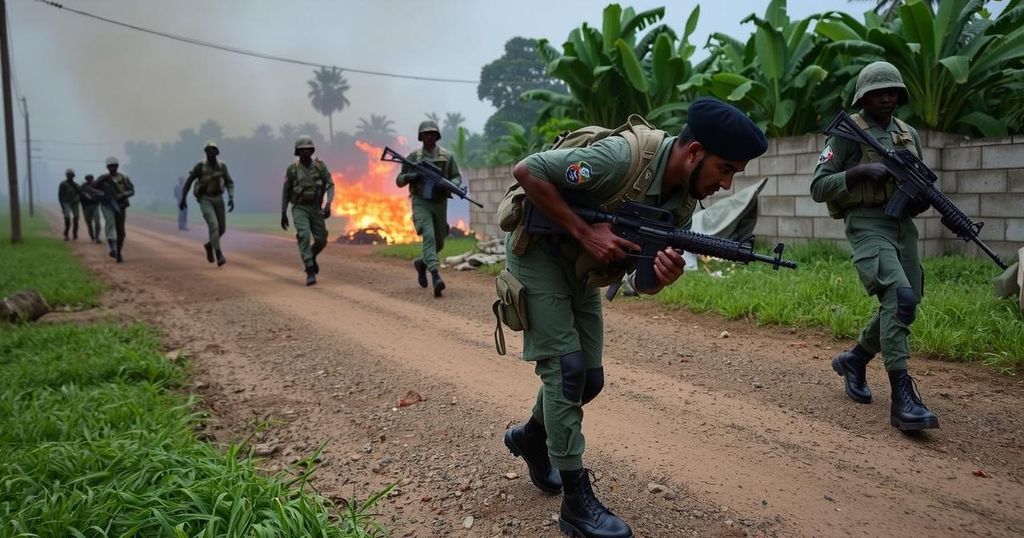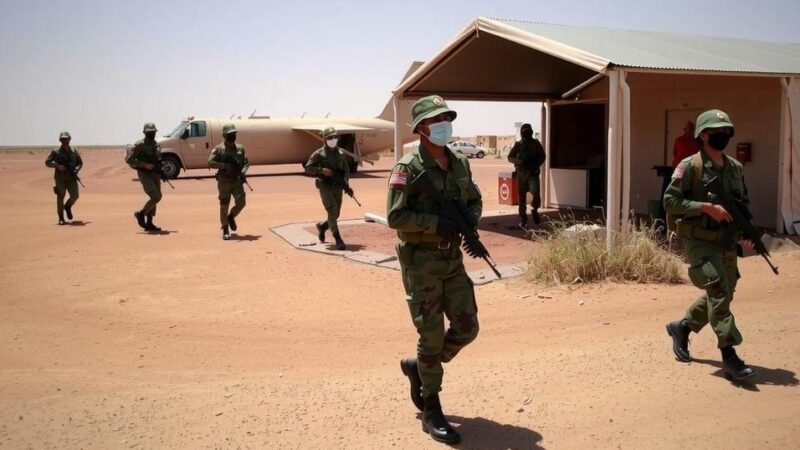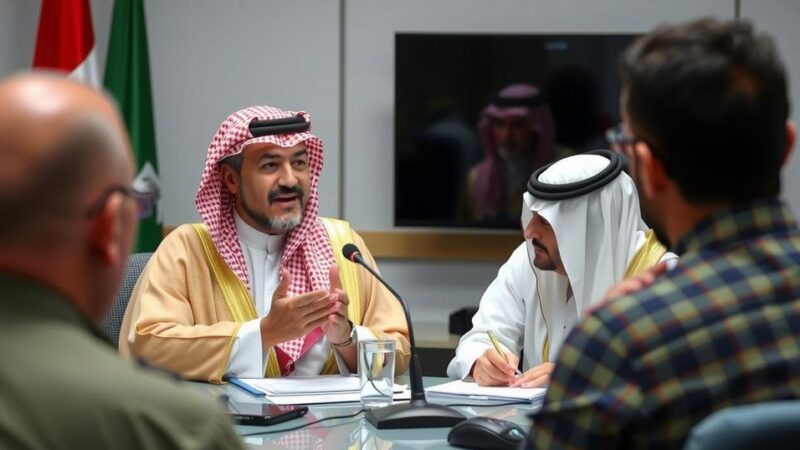Recent clashes in eastern DRC have intensified as fighting escalates between the M23 militia and the Congolese army, despite a ceasefire. The humanitarian crisis worsens, with thousands displaced. Diplomatic efforts are ongoing, but hostilities threaten to undermine them ahead of upcoming talks between Rwanda and DRC leaders.
Fighting in the eastern Democratic Republic of Congo has intensified despite a ceasefire agreement, with clashes between Rwanda-backed M23 rebels and the Congolese army reported over the last four days. The M23 militia has gained control of significant territory since 2021, leading to a humanitarian crisis as thousands have been displaced. Following a truce mediated by Angola in early August, which initially stabilized the front lines, hostilities have resumed with regional military actions underway against the persistent M23 forces.
The M23, which claims to protect the interests of ethnic Tutsis, has launched localized offensives since late October, sparking concern from both the Congolese military and allied militias. Despite ongoing violence, diplomatic conversations between the DRC and Rwanda continue, facilitated by Angola. An M23 spokesperson distanced the group from the ceasefire agreement, indicating a lack of respect for the status quo. As fighting persists, the Congolese armed forces have reported active engagements near critical areas such as the road to Butembo, threatening stability in this key commercial region.
In the wake of the renewed clashes, civilians have begun to evacuate towards safer areas, highlighting the urgent need for humanitarian aid. Reports indicate that both rebels and Congolese forces have bolstered their positions along the northern front, raising fears of further escalation. A meeting between Rwandan President Paul Kagame and Congolese President Felix Tshisekedi is scheduled for December 15 in Luanda, aiming to address the ongoing conflict and explore potential resolutions.
The eastern Democratic Republic of Congo has been embroiled in conflict for decades, compounded by the involvement of neighboring countries such as Rwanda. The M23 militia has emerged as a significant force, claiming to represent the interests of ethnic Tutsis and engaging in armed conflicts against the Congolese government. The humanitarian crisis resulting from the violence has led to widespread displacement of civilians and ongoing instability in the region. International efforts, including diplomatic interventions by countries like Angola, aim to broker peace and manage the conflicts; however, ceasefires have frequently been violated, resulting in renewed fighting.
The situation in the eastern Democratic Republic of Congo continues to be precarious, with recent fighting between M23 militia and the Congolese army escalating despite a previously mediated ceasefire. The ongoing military confrontations have resulted in a humanitarian crisis and displacement of civilians, while diplomatic efforts persist. The future of peace in the region remains uncertain as local and international actors navigate these complex dynamics.
Original Source: thedefensepost.com







